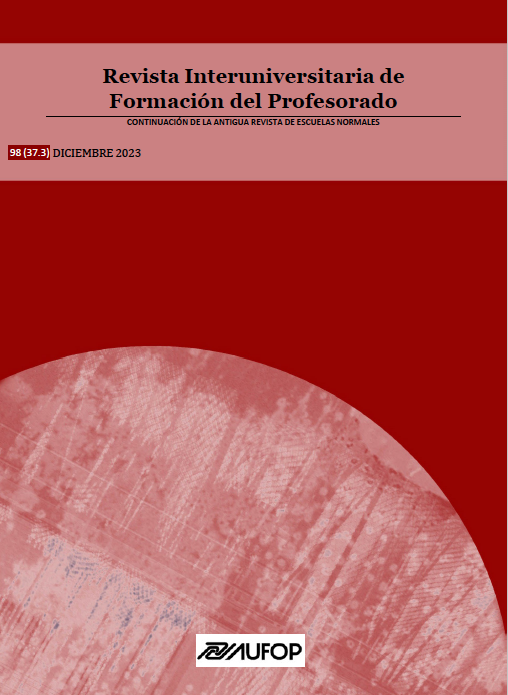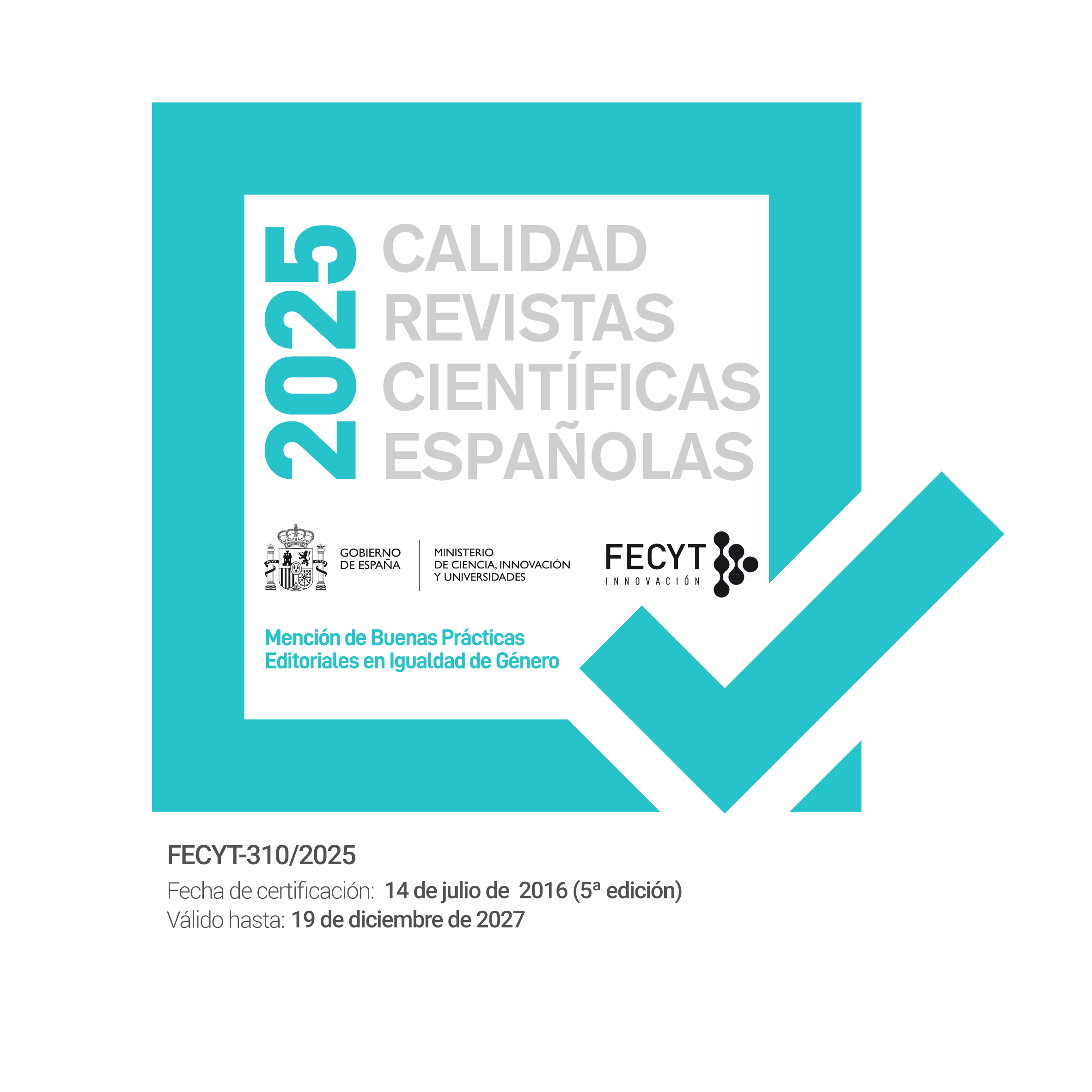Variables explicativas del rendimiento académico en Educación Primaria: implicaciones para la Formación del Profesorado
DOI:
https://doi.org/10.47553/rifop.v98i37.3.97439Abstract
Los maestros, durante su formación inicial y permanente, deben desarrollar competencias para responder a los retos del sistema educativo. Actualmente, uno de estos retos es la mejora del rendimiento académico (RA) del alumnado. Dar respuesta al mismo exige analizar primeramente qué factores están contribuyendo al RA para posteriormente intervenir sobre ellos. Los objetivos de este estudio fueron: 1) analizar si existían diferencias en el RA del alumnado según su nivel autopercibido de funciones ejecutivas (atención, inhibición, regulación emocional), calidad de vida (bienestar físico, bienestar psicológico, autonomía y relación con padres, relación con amigos y apoyo social, relación y apoyo en el entorno escolar), actividad física, curso y género; 2) determinar la capacidad explicativa de estas variables sobre el RA. Participaron 324 estudiantes de Educación Primaria (8-12 años). Cumplimentaron las escalas de Problemas de Atención, Hiperactividad/Impulsividad y Problemas de Regulación emocional del cuestionario SENA para evaluar sus funciones ejecutivas, el cuestionario KIDSCREEN-27 para evaluar su calidad de vida y el cuestionario PAQ-C para evaluar su nivel de actividad física. El RA se midió con sus calificaciones. Se obtuvieron diferencias estadísticamente significativas en función del nivel de las tres funciones ejecutivas y las cinco dimensiones de calidad de vida. No se encontraron diferencias significativas según el nivel de actividad física, curso y género. Solo dos variables (atención; relación y apoyo en el entorno escolar) resultaron explicativas del RA. Abordar estos aspectos en la formación inicial y permanente del profesorado constituye un instrumento crucial para hacer posible la mejora del RA del alumnado.
Downloads
Veröffentlicht
Zitationsvorschlag
Ausgabe
Rubrik
Lizenz
The "Revista Interuniversitaria de Formación del Profesorado (RIFOP)", with ISSN print 0213-8646 and ISSN electronic 2530-3791), adheres to the copyright notices proposed by Creative Commons
Authors’ rights
Papers published in the journal are subject to the following terms:
1. The Asociación Universitaria de Formación del Profesorado (AUFOP) is the editor of the RIFOP and holds the copyright of the papers published therein. The reuse of these is allowed under the license for use as indicated under point 2.
© Asociación Universitaria de Formación del Profesorado (AUFOP)
2. The papers are published in electronic version under the license CreativeCommons Reconocimiento-NoComercial-SinObraDerivada 3.0 España (texto legal). Papers can be copied, used, disseminated, transmitted and publicly exhibited provided that: i) the authorship and original publication source are cited (journal, editors and URL of the paper); ii) they are nit used for commercial gain; iii) the existence and specifications of the license for use are mentioned.
3. Auto-archiving conditions. Authors are allowed and encouraged to disseminate electronic pre-print versions (versions prior to peer review) and/or post-print (versions reviwed and accepted for publication) of their papers prior to their publication, since this favors prompt circulation and dissemination and supposes a possible increase in cites and scope within the academic community.
Privacy declaration
The names and email addresses incorporated into this journal will be used solely for the declared purposes of the journal and will not be available for any other purposes or to third parties.






